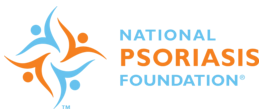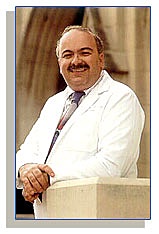 The Portland, Oregon-based Corrona Psoriasis Registry announced it has been selected to track drug safety reporting for ixekizumab, a new biologic medication developed by global pharma Eli Lilly of Indianapolis, which markets it under the trade name Taltz.
The Portland, Oregon-based Corrona Psoriasis Registry announced it has been selected to track drug safety reporting for ixekizumab, a new biologic medication developed by global pharma Eli Lilly of Indianapolis, which markets it under the trade name Taltz.
Ixekizumab
 was approved March 22 by the U.S. Food and Drug Administration (FDA) for treatment of moderate-to-severe plaque psoriasis. The ixekizumab registry is a collaboration between the National Psoriasis Foundation (NPF) and Corrona, LLC — a leading sponsor of autoimmune disease registries.
was approved March 22 by the U.S. Food and Drug Administration (FDA) for treatment of moderate-to-severe plaque psoriasis. The ixekizumab registry is a collaboration between the National Psoriasis Foundation (NPF) and Corrona, LLC — a leading sponsor of autoimmune disease registries.
The FDA’s approval of ixekizumab “provides patients suffering from plaque psoriasis with another important treatment option to help relieve the skin irritation and discomfort from the condition,” said Julie Beitz, M.D., director of the Office of Drug Evaluation III in the FDA’s Center for Drug Evaluation and Research in a press release from the agency.
 “Ixekizumab was approved by the FDA based on safety information drawn from a database of 4,204 patients with moderate-to-severe plaque psoriasis who volunteered in both controlled and uncontrolled clinical trials, and physicians are just beginning to
“Ixekizumab was approved by the FDA based on safety information drawn from a database of 4,204 patients with moderate-to-severe plaque psoriasis who volunteered in both controlled and uncontrolled clinical trials, and physicians are just beginning to  use it in practice,” said Nayan Acharya, M.D. , senior medical director, Cardiovascular, Dermatology and Inflammation at Lilly USA. “This registry affirms our ongoing commitment to assess the safety profile of ixekizumab in clinical practice settings.”
use it in practice,” said Nayan Acharya, M.D. , senior medical director, Cardiovascular, Dermatology and Inflammation at Lilly USA. “This registry affirms our ongoing commitment to assess the safety profile of ixekizumab in clinical practice settings.”
The action of ixekizumab, an antibody that binds to a protein (interleukin (IL)-17A) that causes inflammation in persons with psoriasis and thus is able to inhibit inflammatory response that plays a role in the plaque psoriasis development, is described in a 2012 paper by J.G. Krueger, S. Fretzin, M. Surez-Farias, and others, published in the Journal of Allergy and Clinical Imunology, titled “IL-17A is essential for cell activation and inflammatory gene circuits in subjects with psoriasis.“
Lilly’s ixekizumab product Taltz, which is administered as an injection, is intended for patients who are candidates for systemic therapy (for example, treatment using substances that travel through the bloodstream after being taken by mouth or injected); phototherapy (ultraviolet light treatment); or a combination of both.
 “Many people living with psoriasis are still looking for a treatment that will successfully manage the magnitude of this disease,” said Alex Azar, president of Lilly USA. “With the approval of Taltz, we are proud to provide patients with a new treatment that may help patients experience virtually or completely clear skin.”
“Many people living with psoriasis are still looking for a treatment that will successfully manage the magnitude of this disease,” said Alex Azar, president of Lilly USA. “With the approval of Taltz, we are proud to provide patients with a new treatment that may help patients experience virtually or completely clear skin.”
FDA approval of Taltz was based on safety and efficacy findings established in three randomized, placebo-controlled Phase 3 clinical trials from a program enrolling a total of 3,866 participants with moderate-to-severe plaque psoriasis from 21 countries who were candidates for systemic or phototherapy, including patients who began the trial on Taltz or placebo, or active comparator (U.S.-approved etanercept). Results showed that Taltz achieved greater clinical response than placebo, with skin that was clear or almost clear, as assessed by scoring the extent, nature, and severity of psoriatic changes of the skin.
This clinical program included three double-blind, multicenter, Phase 3 studies: UNCOVER-1, UNCOVER-2, and UNCOVER-3 in patients with moderate-to-severe plaque psoriasis. All three studies evaluated the safety and efficacy of Taltz (80 mg every two weeks, following a 160-mg starting dose) compared to placebo after 12 weeks.
UNCOVER-2 and UNCOVER-3 included an additional comparator arm in which patients received FDA-approved etanercept (50 mg twice a week) for 12 weeks. UNCOVER-1 and UNCOVER-2 also evaluated response rates with Taltz during the maintenance period through 60 weeks.
The co-primary efficacy endpoints for these studies were a 75 percent improvement in the composite Psoriasis Area Severity Index (PASI) score and static Physician’s Global Assessment (sPGA) of zero or 1 at 12 weeks, and at least a 2 point improvement from baseline. The PASI measures the extent and severity of psoriasis by assessing average redness, thickness and scaliness of skin lesions (respectively graded on a zero to four scale), weighted by the body surface area of involved skin. The sPGA is a physician’s assessment of severity of a patient’s psoriasis lesions overall at a specific point in time and is a required measure the FDA uses to evaluate effectiveness.
LIlly reports that in all three studies, at 12 weeks, 87 to 90 percent of patients treated with Taltz saw a significant improvement of their psoriasis plaques and yielded results that were also statistically superior to U.S.-approved etanercept at all skin clearance levels.
 “Complete clearance of skin plaques is an important treatment goal for psoriasis,” said Craig Leonardi, M.D., lead study author and clinical professor of dermatology at St. Louis University School of Medicine. “With Taltz, physicians now have a choice that can help patients achieve virtually clear or completely clear skin; in fact, four out of 10 achieved completely clear skin. With these study results, physicians can reassure patients that consistent results can be maintained with Taltz.”
“Complete clearance of skin plaques is an important treatment goal for psoriasis,” said Craig Leonardi, M.D., lead study author and clinical professor of dermatology at St. Louis University School of Medicine. “With Taltz, physicians now have a choice that can help patients achieve virtually clear or completely clear skin; in fact, four out of 10 achieved completely clear skin. With these study results, physicians can reassure patients that consistent results can be maintained with Taltz.”
Questions about Taltz should be directed to The Lilly Answers Center at 1-800-LillyRx (1-800-545-5979) or visit http://www.lilly.com.
The Corrona Psoriasis Registry will enroll and follow the treatment of at least 4,000 participants with psoriasis being treated with ixekizumab for at least eight years. Over 1,200 people on various psoriasis medications from 100 sites have joined within the registry’s first year. Participation numbers are expected to grow to more than 10,000 people with moderate-to-severe psoriasis being treated with biologics or systemic medications and 200 sites.
Analysis of data collected from thousands of people over many years by the registry will help researchers compare safety and effectiveness of psoriasis therapies, study other diseases and medical conditions associated with psoriasis, and better understand the disease’s natural etiology and course.
 “This is an exciting time for patients with psoriasis as new treatments become available, and this registry will provide the long-term data we need to understand the safety and effectiveness of these therapies,” said Dr. Bruce Strober, professor and chairman of the University of Connecticut Health Center Department of Dermatology and scientific co-director of the Corrona Psoriasis Registry. “The information collected will also provide valuable insights into the relationship between psoriasis and other diseases, as well as the impact of psoriasis and its treatments on quality of life.”
“This is an exciting time for patients with psoriasis as new treatments become available, and this registry will provide the long-term data we need to understand the safety and effectiveness of these therapies,” said Dr. Bruce Strober, professor and chairman of the University of Connecticut Health Center Department of Dermatology and scientific co-director of the Corrona Psoriasis Registry. “The information collected will also provide valuable insights into the relationship between psoriasis and other diseases, as well as the impact of psoriasis and its treatments on quality of life.”
 Lilly is the second drug manufacturer to select the Corrona Psoriasis Registry to meet its regulatory post-approval safety commitments in psoriasis. Particularly for newly approved drugs, these long-term safety studies by an independent organization can help provide patients, physicians, and regulators with the long-term safety data they need, said Dr. Jeff Greenberg, chief scientific officer of Corrona.
Lilly is the second drug manufacturer to select the Corrona Psoriasis Registry to meet its regulatory post-approval safety commitments in psoriasis. Particularly for newly approved drugs, these long-term safety studies by an independent organization can help provide patients, physicians, and regulators with the long-term safety data they need, said Dr. Jeff Greenberg, chief scientific officer of Corrona.
It is estimated that as many as 7.5 million Americans have psoriasis, a chronic, non-contagious immunodysregulatory skin disorder that causes patches of skin redness and flaking that happens when the immune system sends out faulty signals that speed up the growth cycle of skin cells. The exact cause of psoriasis is unknown, though genetics and environmental factors are known to play a role in the development of the disease, which occurs more commonly in people with a family history of the disease, most often manifesting between the ages of 15 and 35. The most common form of psoriasis is plaque psoriasis, in which patients develop thick red skin with flaky, silver-white scales.
The National Psoriasis Foundation (NPF) is the world’s largest nonprofit serving people living with psoriasis and psoriatic arthritis. NPF has funded more than $13 million in psoriatic disease research grants and fellowships. More about the Psoriasis Foundation can be found at http://www.psoriasis.org by calling 1-800-723-9166.
Other resources include:
https://www.aad.org/media-resources/stats-and-facts/conditions/psoriasis


